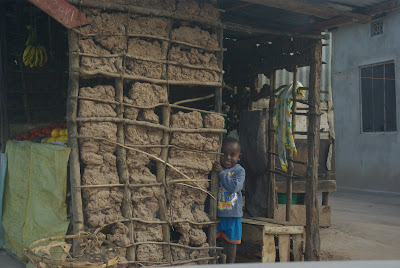 The deepening of the global financial crisis and economic slowdown has given rise to new challenges for Tanzania. Despite the government’s efforts to ensure that the so-far reliable stream of donor aid is sustained, we anticipate real GDP growth slowing to 7.6% in 2009 as tourism, export volumes and FDI all fall on the back of a weaker global economy.
The deepening of the global financial crisis and economic slowdown has given rise to new challenges for Tanzania. Despite the government’s efforts to ensure that the so-far reliable stream of donor aid is sustained, we anticipate real GDP growth slowing to 7.6% in 2009 as tourism, export volumes and FDI all fall on the back of a weaker global economy. The silver lining of the global slowdown will be lower commodity prices. This should help the country improve its large current account deficit since oil is a major portion of imports, and bring inflation down from double digits levels.
The silver lining of the global slowdown will be lower commodity prices. This should help the country improve its large current account deficit since oil is a major portion of imports, and bring inflation down from double digits levels. Over 2009, the lower inflation rate should bring a small rebound in consumer purchasing power, with private consumption expected to return to more typical levels.
Over 2009, the lower inflation rate should bring a small rebound in consumer purchasing power, with private consumption expected to return to more typical levels. That said, the exchange rate presents a key risk. We believe there is a chance the shilling could weaken sharply, which would push up the cost of imports, hurting businesses and leading to another rise in inflation.
That said, the exchange rate presents a key risk. We believe there is a chance the shilling could weaken sharply, which would push up the cost of imports, hurting businesses and leading to another rise in inflation.
The main challenge presented to the government in the wake of the global economic slowdown is to ensure that developed country donors do not cut their aid as they struggle with their own budget shortfalls. With the threat of an aid slowdown looming, we expect Tanzania to push forward on the donor mandated anti-corruption drive, even though the results may be embarrassing for the ruling party.

At the same time, we see the country working to secure patronage from new sources, particularly the Middle East and China. If aid cannot be obtained at desired levels regardless, the country may issue a sovereign bond, despite the disapproval of the IMF.

Weaknesses in Tanzania’s physical infrastructure remain serious. The country’s ports remain expensive and inefficient, the primary Tanzania-Zambia rail line is at risk of closing and extensive power rationing was necessary in September and October 2008 due to repair work on power turbines
.
. Numerous other shortcomings still need addressing; property rights remain weak, skilled labour is in short supply and labour regulations remain high. Nonetheless, the country still manages to attract high levels of FDI on the back of the high growth opportunities, efficient commercial courts, long-standing political stability and a fairly competitive tax regime.

